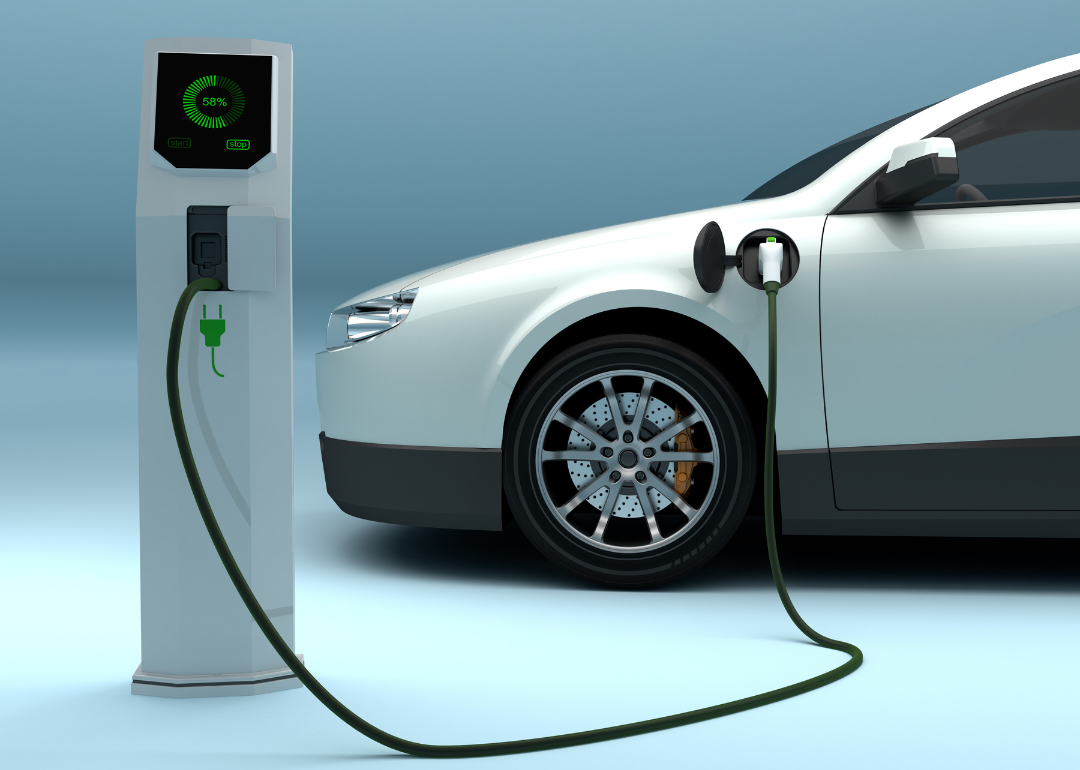
When will electric vehicles get cheaper?
In the last few years, we've seen several mid-range EVs emerge, including Chevrolet's Bolt EV, Nissan's Leaf, and Hyundai's Kona Electric. Everyone's favorite, Tesla, also came up with the Tesla Model 3. All these brands have lowered prices on their entry-level models. So, do these developments hint at a future where EVs are more affordable than ever? Way.com dives in to see when electric vehicles will get cheaper.
Get ready to hit the accelerator on sustainable transportation because the future of electric vehicles is charging forward at full speed! As the world becomes increasingly eco-conscious and the rising global fuel prices are creating havoc everywhere, the demand for electric cars is soaring, and automakers are racing to make them more affordable and accessible. Buckle up and join us as we explore the groundbreaking advancements in the automotive industry.
The future is electric – and affordable
Are electric cars going to get cheaper? Experts have speculated about the imminent rise of electric vehicles for the past decade. Increasing competition, government incentives, and the continuous drop in raw material prices, especially materials like lithium and cobalt, might make EVs more affordable sooner than everyone expected.
According to Bloomberg's New Energy Finance Reports, by 2025, electric cars might cost less than traditional gas-powered vehicles. Moreover, the recent breakthroughs in battery technology are pushing the boundaries of energy storage and driving down production costs. Today's EV batteries are more efficient, boast longer ranges, and are more affordable to manufacture. As we witness the growth of solid-state batteries and other cutting-edge advancements, the prospect of affordable electric vehicles inches closer to our garages.
Role of infrastructure in EV cost reduction
When it comes to electric vehicles, infrastructure matters. A well-developed and easily accessible charging network is the first and most important step in the EV revolution. As charging stations multiply like wildfire, the dreaded range anxiety dissipates, and drivers feel more confident to plunge into the electric world. But wait, there's more! Vehicle-to-grid (V2G) technology is shifting gears, allowing EV owners to return unused electricity to the power grid, unlocking a new realm of cost savings for EV enthusiasts.
How the used EV market boosts affordability
Like the regular used-car market, the used EV market plays a crucial role in the journey to affordability. As early adopters trade up for the latest models, a thriving second-hand electric vehicle market comes to life. Moreover, this thriving marketplace offers savvy shoppers a golden opportunity to snatch an electric gem at a fraction of the cost of a brand-new one.
Policy shifts and incentives
In the race towards a greener tomorrow, governments worldwide are fastening their seatbelts and putting their foot on the accelerator. They are rolling out attractive incentives and policy changes to encourage EV adoption. Picture this: Tax credits that put money back in your pocket, subsidies that make EVs more affordable, and reduced registration fees to ease the financial burden. With these tailwinds, the road to affordable electric vehicles becomes smoother and more accessible to all!
Is now the right time to buy an EV?
Deciding whether now is the right time to buy an EV is a tricky decision to make. According to Kelley Blue Book, "the average price for a new electric vehicle … is well above the industry average and more aligned with luxury prices versus mainstream prices."
Before deciding to purchase or lease a new electric automobile, there are many factors to take into account. The road to affordable electric vehicles is paved with technological breakthroughs, policy support, advanced infrastructure, economies of scale, and more. For a long time, electric vehicles appeared to be out of reach, but with prices predicted to decline, more of us may be able to afford them soon. Moreover, from 2023 onwards, new EV purchases are eligible for tax credits of upwards of $7,500, and used EVs qualify for tax credits upwards of $4,000. If you need more reasons to buy an EV, there you have it!
FAQs
What's the average price of an electric car vs. a gas car?
According to Kelley Blue Book, the average price of an electric vehicle was $61,488, compared with $49,507 for all passenger cars and trucks at the end of 2022. Electric vehicles tend to cost more upfront than gasoline-powered cars, and the gap is steadily declining.
How much will electric cars cost in 2025?
The cost of batteries may further decrease in 2023, making EVs more affordable in the coming years. According to Bloomberg, EVs will be cheaper to buy than comparable gas-powered ones by 2025, and the estimated average cost of an electric car by 2025 is expected to be around $35,000 or even lower.
When will electric cars be mandatory?
The U.S. government wants to progressively transition at least 50% of the country's automobiles to electric power by the beginning of 2030 and progress further gradually.
This story was produced by Way.com and reviewed and distributed by Stacker Media.



